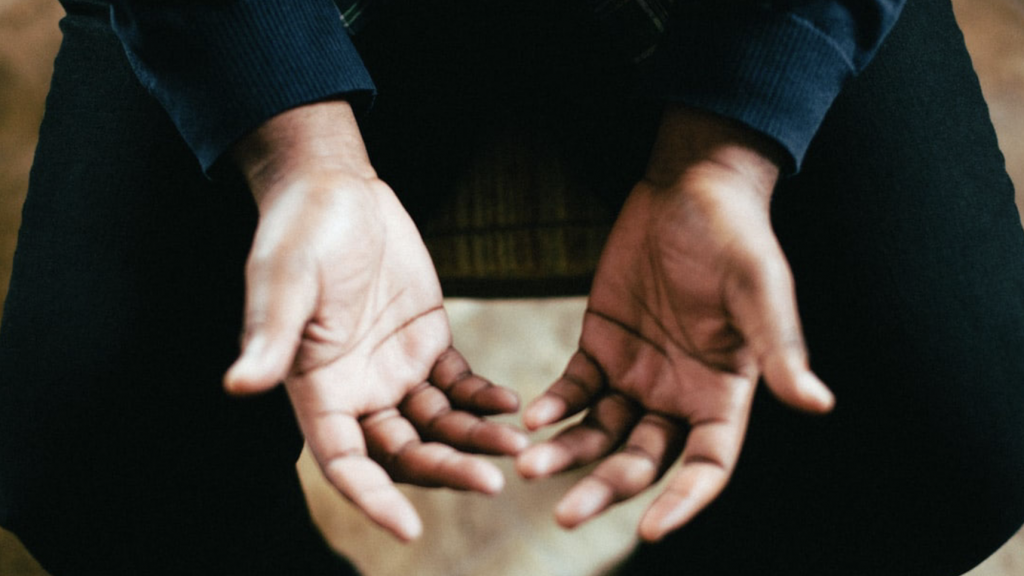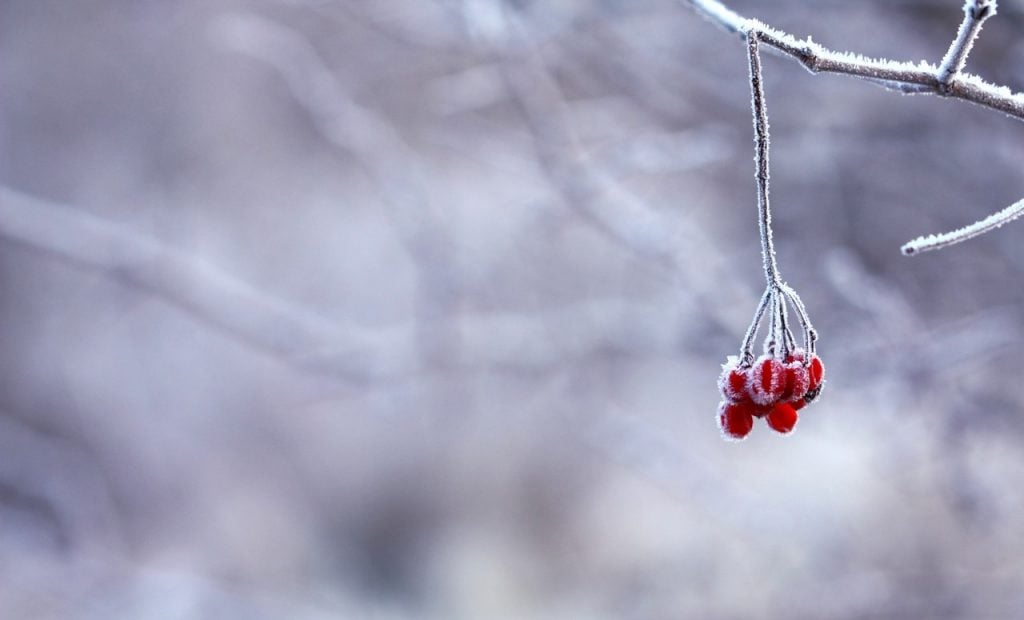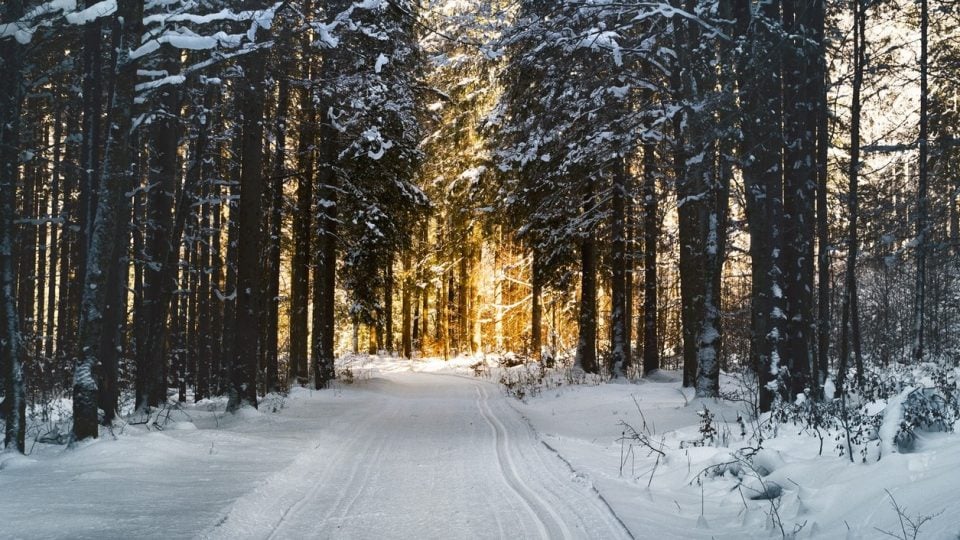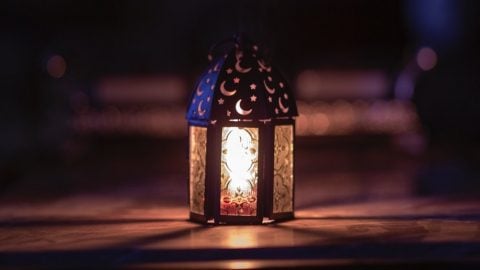The beginning of January can bring on the winter blues for Canadians. The days are short, gloomy and bitterly cold, the nights long, dark and eerily silent. For many, it’s dark when leaving for work in the morning and dark when returning home—if there is a home to return to. At some point, the thought must cross the mind of every person who experiences this: why does it have to be this way?
“Winter is the springtime of the believer.”
Hadith of Prophet Muhammad (ﷺ)
What was Prophet Muhammad (ﷺ) trying to convey to us in this hadith? In many of the world’s cultures today we associate spring with revival, growth, light, beauty, and hope. Does the Prophet’s use of “springtime” embody all these qualities, or did he mean something else entirely? And then, why the tie-in to winter?
The Prophet and many of his Companions (Allah’s pleasure be with them) elaborated on this for us. In another hadith, the Prophet says, “Winter is the best season for the believer. Its nights are long for him to pray in, and its days are short for him to fast in.”
The Prophet and his Companions were not immune to chilly weather, and despite what a person might imagine about life in the deserts of Arabia, they certainly did experience winter. There are narrations in which we find the Companions gathering firewood to keep their homes warm. On very cold nights, following the Prophet’s example, the Companions would give the call to prayer and then instruct the Muslims to pray inside their homes rather than coming out to the mosque. And on other occasions, they would pray with their hands pulled back into their sleeves in an effort to stay warm.

Beat the winter blues with good deeds
Despite all of this, the Prophet’s saying about winter is brimming with positivity. It recasts a time of difficulty as an opportunity to do good. That’s probably why so many people feel compelled to do more volunteer and charity work in the winter. They seek out ways to counter the isolation that winter can bring by going the extra mile to connect with the community. And so in some ways, winter’s short days and long nights make it easier to commit to fasting, prayer and charity.
The Prophet must have emphasized doing good in winter enough for many of the early Muslims to both echo his sayings and to express their love for practicing what he taught. One of the early scholars wept on his deathbed due to the good actions he would no longer be able to perform, one of which was standing up to pray during wintery nights.
For some, there were signs that the good deeds and opportunities of winter might be the key to their salvation. Ibn Rajab reported a story of one Safwan, who went out on a wintery night in Madinah and found a man with little clothing on to protect him from the cold. Safwan took off his own coat and gave it to this person. A person in faraway Syria saw, in a dream, that Safwan was entering Paradise on account of a piece of clothing, which he was holding. The dreamer then took it upon himself to travel to Madinah, find Safwan, and tell him about the dream. Even if such a story may be apocryphal, they give us a clear sense that taking care of those who are vulnerable in the winter was something that was important to the society for which Ibn Rajab was writing.
How to use winter as an opportunity

“In Winter the bare boughs that seem to sleep
Rumi
Work covertly, preparing for their Spring.”
It was an opportunity for the poet, Rumi, who lived for much of his life in Konya, a city in the Anatolian highlands where the winters can be very snowy and cold. Rumi did not fail to reflect on the possible deeper meaning of this season even though enduring such conditions must have been even more difficult in the 13th century than it is today. Winter for Rumi is the season of khalwah (solitude), during which a person, like the rest of the natural world, can slow down the pace of life to revive their spiritual strength. This is an opportunity to prepare for the spring, the season of jalwah (radiance), during which the spiritually revived person can rejoin the hustle and bustle of life.
It was an opportunity for the globetrotter Ibn Battuta, as he sat down to make wudu (ablution) in a camp in today’s southwestern Russia. He boiled water for this purpose, but it froze on his skin and beard by the time he splashed it on his face. (The fact that he had to wear three fur coats while doing this probably didn’t help.) Many narrations indicate the expanded reward of making wudu during a time of difficulty, and it’s rarely more difficult than it is on a chilly winter day.
It was an opportunity for the early Muslim settlers in Canada, who had to endure the winter blues of the True North, but chose to stay and build the foundations of Canada’s Muslim community. These include the example of Hilwie Hamdon, a Muslim lady living in Fort Chipewyan in the 1920s, getting around mostly by dogsled and once traveling 500 km over 7 days to Fort McMurray—and taking a train from there to Edmonton—just to take her infant daughter to the doctor. It includes Ferran Ahmed, who in 1921 found himself homeless in the remote island village of Alert Bay in British Columbia. An elderly lady noticed him and gave him a place to sleep and $15 to get off the island, which set him on the course to work hard and become the “Arctic Arab,” a famous Canadian fur trader.
Winter is an opportunity for us today, an opportunity to do good. We have no control over the changing of the seasons or the winter blues, but we do choose how the seasons change us. So dress warmly, get out there, and do something that will change you, your community and your world for the better.






